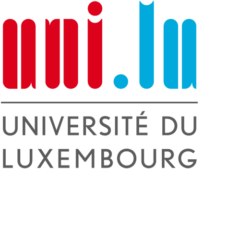Date/Time
Date(s) - 14/12/2022
11:30 am - 1:00 pm
Categories
Guest lecturer: Dr Ioana Cîrstocea
Ioana Cîrstocea is a sociologist, a research officer at the CNRS and a member of the European Centre for Sociology and Political Science (CESSP, Paris). Her research combines topics such as the sociogenesis of gender expertise in Eastern Europe, processes of liberalisation in post-socialist universities, the production of academic knowledge on (post-)socialism, the transnationalisation of feminist mobilisation and repertoires, and the development and use of globalised and globalising norms on gender equality promoted by international organisations since the end of the Cold War. Her latest book is Learning Gender after the Cold War. Contentious Feminisms, Palgrave Macmillan, 2022.
Webex link:
https://unilu.webex.com/webappng/sites/unilu/meeting/info/510ccf0f03ba4fb6bb3ff5643e6a6f5d?siteurl=unilu&MTID=m453ff32a6614887b2f870b4c0f87222e
In the framework of the Winter Online Lecture Series on Europe:
The new edition of the Winter Online Lecture Series on Europe will take place in December 2022 in connection with the courses “History of European integration (1919-1993)” (MAHEC-S1-M6i) and “Economic and social history of Europe after 1945: concepts, processes, actors” (MAHEC-S3-M5iii) from the Master in European Contemporary History, and the course “Democratic transitions in Central and Eastern Europe” (BCE-EU-301-04) from the Bachelor in European Cultures, with the aim of giving students on these programmes, as well as the wider academic community at the University of Luxembourg, the opportunity to find out about the history and workings of the European institutions in Luxembourg from new and unconventional angles and to discuss some of the milestones in contemporary European history with people who were involved in or witnessed these events. Each session (in French, with a Q&A session in French and English) will be streamed via Webex and will include a presentation by a speaker followed by a discussion with the audience and the opportunity to ask questions. The lectures are run in conjunction with Europe Direct at the University of Luxembourg and are also open to the wider public.
